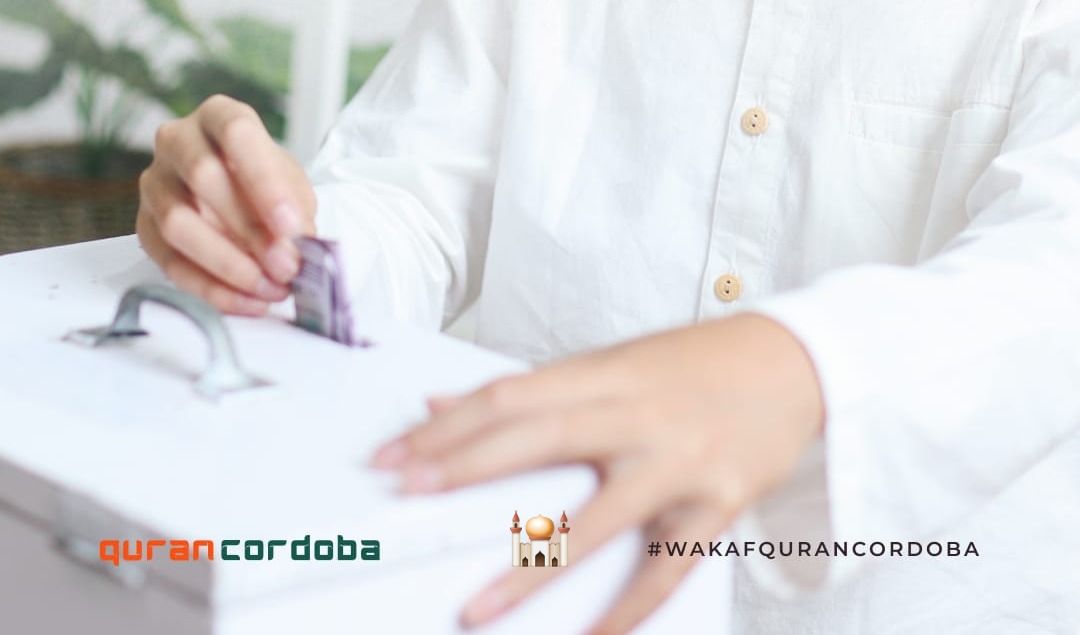Heri Mahbub
The vocabulary of "Murajaah" has become familiar among the people since the rise of the memorizers of the Koran or Hafiz. However, many do not fully understand the meaning or philosophy behind the term "murajaah".

The vocabulary of "Murajaah" has become familiar among the people since the rise of the memorizers of the Koran or Hafiz. However, many do not fully understand the meaning or philosophy behind the term "murajaah". They often consider Murajaah as an activity to repeat the memorization of the Koran in groups. Therefore, the author feels the need to provide further explanation.
The word "murajaah" comes from the root of the word "king'a" (رَجَعَ) which means back or go home. The process of repeating memorization is called murajaah because it can only be done after repeating back to the previously studied parts. This follows the grammatical pattern "wazan mufaa'alah" (مُفَاعَلَةٌ) from the form of the verb faa'ala yufaa'ilu (فَاعَلَ يُفَاعِلُ), which basically describes actions carried out together. Therefore, Murajaah was initially not done individually, but rather involved mutual assistance between fellow memorizers of the Koran.
Also read: Some Prayers Recommended to Memorize the Quran
Exchange answers in discussions or chatting, as described in the Arabic dictionary, can also be called murajaah. Imam Ilkiya al-Harasi (d. 504 H.) states that every time he memorizes knowledge in the form of a hadith, he will read it again with the help of his wife at home, even though his own wife has not memorized. The action taken by Ilkiya al-Harasi was declared "murajaah", similar to the tradition of deposit.
There was one incident when the Messenger of Allah stated, " Whoever is judged, means he will be diadzab ." Then, Siti Aisyah asked, "Isn't there a light reckoning for the person who was given her deeds notebook from the right hand?" The Messenger of Allah answered, "Light reckoning is not a reckoning that is responsible for every deeds one by one, but only shows his charity book." The actions taken by Siti Aisyah in referring to Imam Al-Bukhari's hadith (d. 259 H.) are referred to as Murajaah.
Siti Aisyah not only received knowledge from the Prophet who was not understood without a question, but he clarified his understanding by asking him back. In this case, Murajaah not only aims to strengthen memorization, but also to deepen understanding. Imam al-Bukhari (d. 504 H.) even included the story of Murajaah Siti Aisyah as a special chapter in the book of Science from Sahih.
When a researcher refers to the main reference to prove the results of his research, it is also referred to as Murajaah. The word "refer" comes from the Arabic "Ruju" "(رُجُوْعٌ), which is the basis of the word" murajaah ". In the tradition of reading the Koran by looking (binnazhar) in the archipelago, if there is a waqaf (stop) in an unfinished sentence, then to continue reading, the reader must retreat to the beginning of the sentence. This is also referred to as Murajaah.
There was one incident where Umar bin Khaththab passed through a group of people who were reading the Koran in groups. Then, Umar asked them, "Did you cross each other to read the Koran?" They replied, "We are reading the Koran for some of us to others." The vocabulary used by Umar bin Khaththab when asking them is "Murajaah".
Also read: How is the Ideal Time Management in Memorizing the Quran
Thus, Murajaah is different from takrir or tikrar. Although both means repeating, takrir or tikrar is more related to repeating lessons that have not been memorized until they are completely memorized. One of the techniques known among salaf scholars is to multiply takrir, namely by repeating lessons to memorizing. While Murajaah refers to repeating the lessons that have been memorized before the period of remembering, with the aim of maintaining and improving its quality in various aspects such as intimacy, understanding, practice, solemnity, dhikr, and sincerity.
This can be done individually or in groups, or by providing deposits to a hafizh. Thus, the reading becomes a prayer that must be expected by everyone.
The Messenger of Allah once quoted the word of God, or known as the Hadith Qudsi, that Allah SWT said, " Whoever is preoccupied by the Koran so that he does not have time to ask me, then I will give him something better than given to the request."
In other words, Murajaah is also a way for memorizing the Koran to ask God in the best and most mustajab way. Maybe this is one of the reasons why at the time of friends and tabiin, they were given a lot of gifts by God, even though their dhikr and prayers were only reading the Koran.
Thus the explanation of what is Murajaah, and his noble struggle for memorizing the Koran. This paper was inspired by KH. Deden Makhyarudin MA, Founder of Indonesia Murajaah who gave a lot of guidance to the Qur'an hufaz. Hope it is useful.
wallahu'alam
Inspiring people to love and live with the Quran

